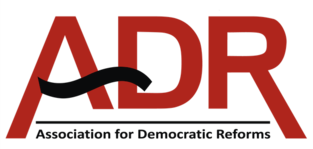Source:
Date:
16.11.2016
City:
The demonetisation of high value currency notes by the centre to purportedly purge the domestic economy of black money is likely to radically impact the 2017 Uttar Pradesh assembly polls.
Since, demonetisation has sucked enormous amount of liquidity from the market and the new currency notes would take several weeks to restore normalcy, the prospective candidates sighting forthcoming UP electionsas a ready medium to splurge unaccounted wealth have taken a major hit.
The demonetisation is likely to not only limit the number of candidates fighting polls as independents, but leave a sobering effect on the elections’ expenditure and scale compared to previous polls.
Due to its inherent unaccounted nature, there is no data to suggest the quantum of black money spent by candidatesduring the previous UP polls, yet estimates put the figure at several hundred crores of Rupees.
There are 403 assembly seats in UP and every seat witnesses multiple candidates trying their luck. In 2012, a total of 6,839 candidates had fought the state polls. Even by a conservative estimate of each candidate spending Rs 50 lakh on an average, the polls must have resulted in total spending of over Rs 3,000 crore, including legitimate spending.
Some candidates with deep pockets contest as independents to merely gain local prominence and publicity during such polls.
Most candidates understandably spend several crores, although the expenditure limit for each candidate is significantly lower. The candidates have to spend towards their aides, volunteers and party workers in run up to elections, besides incurring for publicity, canvassing, vehicles, election office, snacks, tents etc.
In his address to nation on the night of November 8, Prime Minister Narendra Modi had announced the decision to demonetise currency notes of 500 and 1,000 denomination.
It has never been a secret that huge amount of unaccounted cash routinely finds its way to polls and over the years the Election Commission (EC) has been devising ways to check this menace.
The open accusation against Bahujan Samaj Party (BSP) supremo Mayawati, by several of her estranged aides is of selling party tickets is only an indicator of the deep malaise.
The poll expenditure book starts ringing even before a prospective candidate is officially nominated by a party, while the rule of expenditure limit fixed by EC is effective only after polls dates are announced.
In a recent survey report by the Association of Democratic Reforms (ADR), contractors, builders and businessmen associated with mining, education and chit funds were projected to comprise about 80 per cent of the likely candidates in UP polls.
ADR had surveyed 2,200 declared or likely candidates across 60 UP assembly seats. It found contractor made up for 21 per cent of likely candidates, followed by builders 18 per cent, education business 17 per cent, mining 13 per cent and chit fund 15 per cent.
Real estate, mining and chit fund segments have the dubious distinction of accounting for the largest share of unaccounted money, apart from the bullion segment.
The demonetisation has cast a shadow on the prospects of such candidates, since their unaccounted cash holdings hold no value unless they declare the booty and incur penalties possible prosecution for evasion.
A retired bureaucrat on condition of anonymity said demonetisation would certainly have a telling effect on UP polls and the role of dirty money would be significantly lower in these elections.






